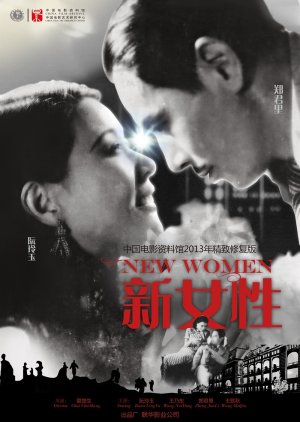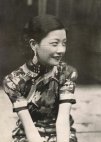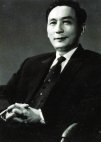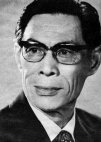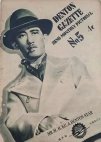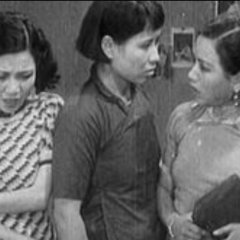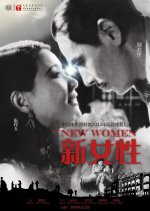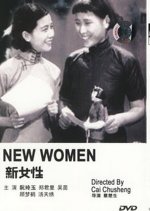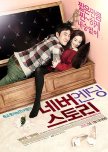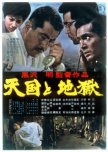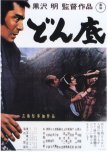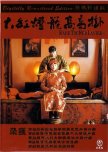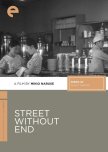Wei Ming is a Shanghai music teacher who wants to become an author. When one of her books is accepted for publication, it seems like her dreams are about to come true. But then Wei rejects the advances of a man named Dr. Wang, a powerful member of the local school board, and everything starts tumbling down. Using his influence, Dr. Wang manages to get Wei fired from her teaching job. Wei falls back on her publisher and then a journalist, but she rejects them after they hit on her. With bills to pay and a sick daughter, Wei has no choice but to become a prostitute. (Source: TheChinaProject.com) ~~ Inspired by the life of Chinese actress Ai Xia. Edit Translation
- English
- magyar / magyar nyelv
- dansk
- Norsk
- Native Title: 新女性
- Also Known As: Xin Nu Xing ,
- Director: Cai Chu Sheng
- Genres: Historical, Drama
Cast & Credits
- Ruan Ling Yu Main Role
- Zheng Jun LiYu Hai ChouSupport Role
- Liu Qiong[Doctor A]Support Role
- Gu Meng HeQi Wei DeSupport Role
Reviews

This review may contain spoilers
"...it's a woman who never falls down."
New Women was a radically feminist movie for 1935 and a bit of a real-life revenge flick as well. Moreover, it was also silent film star Ruan Ling Yu's next to the last film with an ending reflecting her own. Though heartbreaking verging on melodramatic at times, New Women also strove to normalize working and independent women and call out the men who preyed on them.In real life, Director Cai Chu Sheng was rumored to have had an affair with left wing actress and writer Ai Xia. When Ai Xia was savaged in the papers over her private life, she committed suicide. This film was said to be inspired by her struggles. The film also explored the new roles women were taking on in society prompting New Women to be promoted as a film about "the woman question."
Wei Ming (Ruan) is a beloved high school music teacher and aspiring writer. She has written for a local paper and submitted a book to a publisher. Though she is drawn to her book editor he gently turns her down while still supporting her at the publishing house. She is pursued by Mr. Wang, a wealthy married man, the husband of an old school friend. He sabotages her at the school hoping to force her to turn to him. An editor at the paper also tries to seduce her while promising her more work if she is cooperative. Even the local pimp states that with money you can always cop a feel.
Our beautiful heroine is behind in nearly all of her bills. After being paid at the paper she buys a wobble doll with a female worker on top of the globe. She tells the book editor he'd like it because the doll never falls down. Wei has a female friend, Li Aying, who works at a factory and also teaches the women workers to sing songs about being strong and independent. Aying is in a similar boat financially as Wei. To add to Wei Ming's woes, her sister informs her that her husband has died and she must bring Wei Ming's secret daughter to come live with her. Upon her arrival, the daughter is coughing, a sure sign in a Chinese film that the child is dying. The hospital staff informs Wei that the child's pneumonia can be easily cured with the new antibiotics but she must pay upfront for the treatment and the women have nowhere near enough money even after pawning most of what they own. To compound her discouragement, Wei Ming notices the wall of medications and the ward full of empty beds at the hospital ironically named Philanthropy Hospital.
After trying every legal way she can to cobble together the money for her daughter's treatment, Wei's landlady who works with the local pimp tells her that by agreeing to prostitute herself she could earn more than enough money in one night. Regarding a woman's plight, she tells the younger woman, "What other path is open to us?" Desperate to save her child, Wei Ming agrees only to find her wealthy client is the dastardly Mr. Wang. She refuses him and knows that if her child dies, she will follow her.
The film was set in the 1920's as women were beginning to enter the work force causing pushback from the males in charge. As in most countries, women were often paid less, discriminated against, sexually harassed and assaulted with little recourse. Li Aying stated that the new woman is born from hardship. There were different kinds of women presented in the story. Wei Ming was intelligent and focused on earning money with her talent, not her body but because of her beauty and physical fragility the men in charge sought to take what they wanted from her. They used the resources at their fingertips to bring her down and punish her for not acquiescing to their sexual demands. In a time when it had to seem rebellious to the standard quo, she equated marriage with slavery for a woman and felt like one night of slavery prostituting herself would be better than a lifetime. Aying was tough mentally and physically and believed in the Left's view of equality. One of the greatest movie moments in history was when she headbutted a despicable lech---twice! Mrs. Wang was unwilling to rock the boat and risk losing her status and wealth via her close proximity to Mr. Wang's power, thus turning a blind eye to his wandering proclivities.
Ruan Ling Yu gave an enchanting and heartrending performance in a role that not only mimicked Ai Xia's life, but hers as well. When the movie was screened, the press took great exception at being portrayed so negatively and forced the director to make numerous cuts to the film. In retaliation, they printed salacious stories about Ruan which in combination with an ex-lover's lawsuit, possibly instigated by the press, drove her to commit suicide a month after the film's opening.
The movie had some primitive sound effects and dubbing over the intertitles. In the copy I saw, the music became quite distorted at times. Overall, the quality of the cinematography worked well as the director utilized the different camera tricks he had at his disposal. The ravages of time had done some damage to the frames, but not enough to become a distraction.
New Women attempted to break new ground by calling out predatory men and a predatory press. It also sought to give hope to those who had been knocked down one too many times even with the film's heartbreaking ending. When Wei Ming decided she wanted revenge on the men who had brought her low, Aying told her, "…to continue living is without a doubt the prerequisite for doing anything at all!" New Women could feel a tad propagandistic at times but for the most part portrayed women's struggles in the world, especially those who attempted to follow a dream, in a fairly realistic manner. Even after the "Me, Too" movement many decades later, women are still seeking respect and equality at work and in society. When a film entertains and causes the viewer to think, that makes it successful in my book.
5/10/23
Was this review helpful to you?
Recommendations
There have been no recommendations submitted. Be the first and add one.

